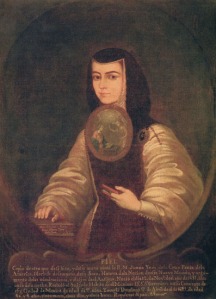Lost Gardeners, a poem by John Anstie; spotlight on the Lost Gardens of Heligan

“This intoxicating mixture of history and place was powerful enough to compel me to write this in their memory.” John Anstie
There was such colour and bustle
where now reflective calm.
In the thunderbox room
nearby the melon yard
haunting echoes of silent voices
once green fingers that pressed
a trigger for King and country
gently call from an early grave,
who once scattered humus here.
They shed tears for weeds
that stained the fresh leaves
of Spring, unfolding, unseen
cold frames of mouth-blown glass,
warmed the summer fare
that meant so much to those
who dug one last trench
so many lost at such a cost
shovelling cold organic mud
to sow the seeds of future green
in very unmilitary drills
and who would say what
could have been had peace
been thoughtfully nurtured
like the fruits of this place.
Inundated by nature’s mission
their names forever bleeding
from these crumbling walls
so few in the flesh of then
left much in the earth of now.
Originally published on The BeZine blog. John is a member of the Zine core team.
© 2019 John Anstie
A visit to the Lost Gardens of Heligan in Cornwall, in the United Kingdom, revealed to me a very poignant story of its gardeners, 16 out of 22 of whom lost their lives in the First World War; of the gardens, which subsequently fell into ruin until the 1990’s when a descendant of the original owners set about restoring them to become one of the UK’s most popular botanical gardens. The scene is set around the ‘thunderbox’ room where they would carve the names in the walls as they sat and the very peaceful garden adjacent to it, where you can feel the history of this particular part of the gardens, which had almost completely succumbed to nature’s will. This intoxicating mixture of history and place was powerful enough to compel me to write this in their memory. / John Anstie
Jamie Dedes:
- About /Testimonials / Disclosure / Facebook / Medium / Ko-fi
- 2020 Poet Laureate of Womawords Literary Press
- The Wombwell Rainbow interviews Jamie Dedes
Your donation HERE helps to fund the ongoing mission of The Poet by Day in support of poets and writers, freedom of artistic expression, and human rights.
Poetry rocks the world!
FEEL THE BERN
For Peace, Sustainability, Social Justice
The Poet by Day officially endorses Bernie Sanders for President.
The New New Deal
“Democracy is not a spectator sport.”
“Every pair of eyes facing you has probably experienced something you could not endure.” Lucille Clifton


